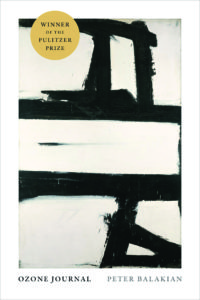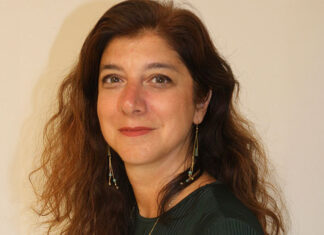 By Aram Arkun
By Aram Arkun
Mirror-Spectator Staff
HAMILTON, N.Y. – Peter Balakian won the Pulitzer Prize for poetry in April of this year, and the reaction has been overwhelming for him. The prolific author of non-fiction and poetry, a professor and chair holder at Colgate University, won the prize for his most recent collection of poems, titled Ozone Journal.
Balakian was not expecting such an award. This was in part because, unlike other prizes, the Pulitzer has a very tightly controlled process preventing leaks. Last week, he said, “It came out of the blue for me. My publisher knew nothing. I knew nothing. When I started getting text messages around 3:30 Central Time, because I was at the University of Illinois central campus, I didn’t know what people were texting about. I was actually texting back question marks. I thought to myself something nice must have happened. I won a grant or something. The last thing on my mind was the world of prizes.”
The Pulitzer is America’s most prestigious prize for artistic and intellectual achievement. It includes a monetary award of $10,000, but it is the recognition and attention that it brings which is most important. Balakian reflected, “I think prizes don’t affect your work. You are just so happy to be at your desk continuing your work.” On the other hand, he said, “It does amplify one’s visibility. It is valuable for me as a writer in a non-commercial art — poetry. If the prizes bring attention in general to the more complex lyric arts, that is a good thing for society. I think American society needs to be more plugged into poetry and the other lyric arts.”
The reaction has been so great for Balakian that it will take him some weeks to respond to the hundreds of messages from around the world that he has received within the span of one week. Armenians in Armenia and many other countries have written expressing how heartening it is that the voice of an Armenian is being recognized, especially in this period of particular tension over Artsakh.







